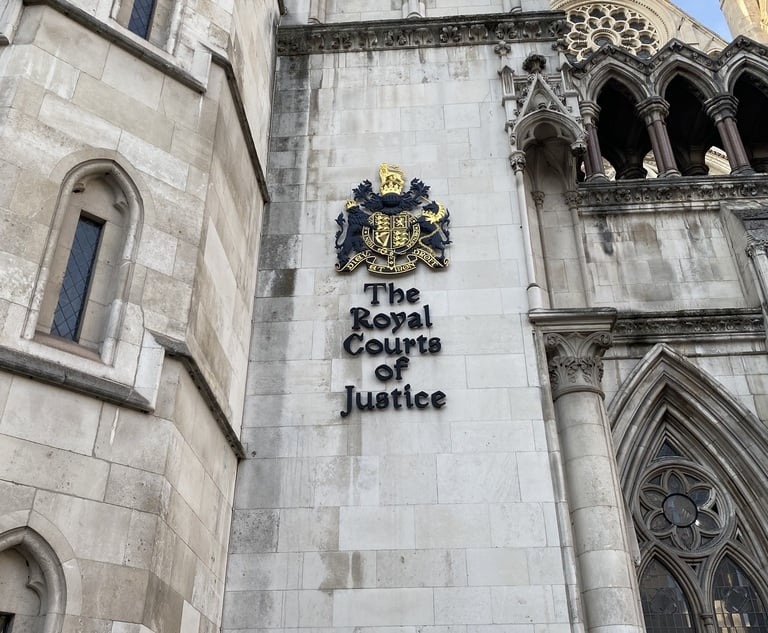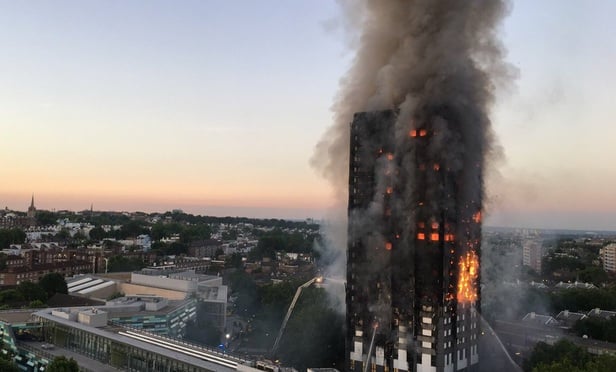Former Court of Appeal judge appointed to lead Grenfell Tower fire inquiry
Sir Martin Moore-Bick chosen to head up high-profile inquiry into north London fire
June 29, 2017 at 06:54 AM
3 minute read
A retired Court of Appeal judge who was once accused of "social cleansing" has been appointed to lead the public inquiry into the Grenfell Tower tragedy.
Sir Martin Moore-Bick, who left the bench last December, was criticised in a 2014 case after allowing Westminster City Council to rehouse a single mother with five children 50 miles away in Milton Keynes – a decision that was later overturned by the Supreme Court.
After his ruling, Hodge Jones & Allen, the law firm representing the family, said the judgment would "give the green light for councils to engage in social cleansing of the poor on a mass scale".
Moore-Bick is widely respected within the legal profession, however, and was recommended to head up the inquiry by the Lord Chief Justice, according to The Telegraph.
Before being appointed to the High Court in 1995, he was a QC, specialising in commercial and shipping law, and also held a number of senior positions within the judiciary, including deputy head of civil justice and vice-president of the civil division of the Court of Appeal.
He continues to accept appointments as an arbitrator at 20 Essex Street.
The Grenfell Tower fire in North Kensington, which broke out on 14 June, has claimed the lives of at least 80 people, although police have said the final death toll will not be known until the end of the year.
A number of firms and lawyers have offered free legal services to those affected by the disaster, while the UK government has confirmed that families will be granted legal aid for representation during the investigation.
The tragedy has led to a wide-ranging review of fire safety at tower blocks across the country, with alarming results. More than 120 high-rise buildings in England have so far failed the safety inspections.
Several US law firms are currently looking into shareholder claims against the New York-based manufacturer of the cladding used on Grenfell and various other tower blocks, which has been blamed for the fire's rapid spread across the building.
Arconic recently announced that it was ceasing sales of the Reynobond PE material worldwide. The company's share price has since fallen by 15%, wiping $1bn from its market cap, and earlier this week was the worst-performing stock in the S&P500 for two consecutive days.
This content has been archived. It is available through our partners, LexisNexis® and Bloomberg Law.
To view this content, please continue to their sites.
Not a Lexis Subscriber?
Subscribe Now
Not a Bloomberg Law Subscriber?
Subscribe Now
NOT FOR REPRINT
© 2025 ALM Global, LLC, All Rights Reserved. Request academic re-use from www.copyright.com. All other uses, submit a request to [email protected]. For more information visit Asset & Logo Licensing.
You Might Like
View All
Slaughter and May Leads As Government Buys Back £6 Billion of Military Homes
2 minute read
LatAm Moves: DLA Piper Chile, Brazil’s Demarest Build Out Disputes Muscle

Kingsley Napley and Lord Pannick Spearhead Private Schools' Challenge to Government VAT Policy

Spain Loses Appeal as London Court Rejects Claim of Immunity in €101 Million Arbitral Award Enforcement
Trending Stories
- 1'It's Not Going to Be Pretty': PayPal, Capital One Face Novel Class Actions Over 'Poaching' Commissions Owed Influencers
- 211th Circuit Rejects Trump's Emergency Request as DOJ Prepares to Release Special Counsel's Final Report
- 3Supreme Court Takes Up Challenge to ACA Task Force
- 4'Tragedy of Unspeakable Proportions:' Could Edison, DWP, Face Lawsuits Over LA Wildfires?
- 5Meta Pulls Plug on DEI Programs
Who Got The Work
Michael G. Bongiorno, Andrew Scott Dulberg and Elizabeth E. Driscoll from Wilmer Cutler Pickering Hale and Dorr have stepped in to represent Symbotic Inc., an A.I.-enabled technology platform that focuses on increasing supply chain efficiency, and other defendants in a pending shareholder derivative lawsuit. The case, filed Oct. 2 in Massachusetts District Court by the Brown Law Firm on behalf of Stephen Austen, accuses certain officers and directors of misleading investors in regard to Symbotic's potential for margin growth by failing to disclose that the company was not equipped to timely deploy its systems or manage expenses through project delays. The case, assigned to U.S. District Judge Nathaniel M. Gorton, is 1:24-cv-12522, Austen v. Cohen et al.
Who Got The Work
Edmund Polubinski and Marie Killmond of Davis Polk & Wardwell have entered appearances for data platform software development company MongoDB and other defendants in a pending shareholder derivative lawsuit. The action, filed Oct. 7 in New York Southern District Court by the Brown Law Firm, accuses the company's directors and/or officers of falsely expressing confidence in the company’s restructuring of its sales incentive plan and downplaying the severity of decreases in its upfront commitments. The case is 1:24-cv-07594, Roy v. Ittycheria et al.
Who Got The Work
Amy O. Bruchs and Kurt F. Ellison of Michael Best & Friedrich have entered appearances for Epic Systems Corp. in a pending employment discrimination lawsuit. The suit was filed Sept. 7 in Wisconsin Western District Court by Levine Eisberner LLC and Siri & Glimstad on behalf of a project manager who claims that he was wrongfully terminated after applying for a religious exemption to the defendant's COVID-19 vaccine mandate. The case, assigned to U.S. Magistrate Judge Anita Marie Boor, is 3:24-cv-00630, Secker, Nathan v. Epic Systems Corporation.
Who Got The Work
David X. Sullivan, Thomas J. Finn and Gregory A. Hall from McCarter & English have entered appearances for Sunrun Installation Services in a pending civil rights lawsuit. The complaint was filed Sept. 4 in Connecticut District Court by attorney Robert M. Berke on behalf of former employee George Edward Steins, who was arrested and charged with employing an unregistered home improvement salesperson. The complaint alleges that had Sunrun informed the Connecticut Department of Consumer Protection that the plaintiff's employment had ended in 2017 and that he no longer held Sunrun's home improvement contractor license, he would not have been hit with charges, which were dismissed in May 2024. The case, assigned to U.S. District Judge Jeffrey A. Meyer, is 3:24-cv-01423, Steins v. Sunrun, Inc. et al.
Who Got The Work
Greenberg Traurig shareholder Joshua L. Raskin has entered an appearance for boohoo.com UK Ltd. in a pending patent infringement lawsuit. The suit, filed Sept. 3 in Texas Eastern District Court by Rozier Hardt McDonough on behalf of Alto Dynamics, asserts five patents related to an online shopping platform. The case, assigned to U.S. District Judge Rodney Gilstrap, is 2:24-cv-00719, Alto Dynamics, LLC v. boohoo.com UK Limited.
Featured Firms
Law Offices of Gary Martin Hays & Associates, P.C.
(470) 294-1674
Law Offices of Mark E. Salomone
(857) 444-6468
Smith & Hassler
(713) 739-1250









